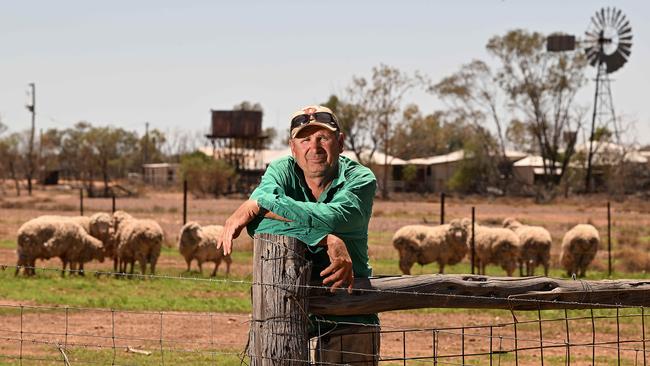Albanese government was warned about effects of ending live sheep exports
Experts hired by the Albanese government recommended a 12-year phase out of live sheep exports. Instead, they will be axed in three years.

Experts hired by the Albanese government to provide advice about the shutdown of live sheep exports forewarned that rushing to end the trade would damage the wool industry.
Farmers say those repercussions are now playing out, with wool production at its lowest in a century and Merino sheep flooding the market as producers rush to leave the sector amid a “profitability crisis”.
Market analysis firm Episode 3 advised that Labor’s policy was not backed by science and data, but recommended that if the government was intent on shutting down the trade, it should be phased out over at least 12 years to avoid shocks to the supply chain.
Instead, the government last year passed legislation to end live sheep exports by May 2028, insisting it would give farmers time to transition into new industries.
Episode 3 director Matt Dalgleish said the result was wool producers in Western Australia, where the live export trade is based, choosing to leave the sheep industry altogether.
“We feel that (the government) could have had the transition much more orderly over a longer period of time to allow for the right kind of adjustment through the supply chain and our report suggested a 12-year phase period, not a three-year one,” Mr Dalgleish said. “That’s a much longer period allowing the right things to be put in place through the supply chain to not damage the sector.
“Because we’re not seeing the right amount of time to allow for the adjustment, that’s why we’re seeing farmers opting out.”
Combined with depressed global wool prices and high input costs for farmers, many have opted to leave the industry altogether.
“They’ve lost confidence,” Mr Dalgleish said. “They can’t see how it could be done in such a short period of time and we don’t think it can be either.
“That was all in our report.
“To me, it’s a bad decision initially and then the manner in which they’ve now tried to implement it has also been hasty and I think they’re almost trying to fit a predetermined schedule rather than look at what the experts in the industries are saying.
“To try to force it into a three-year period … is incredibly problematic.”
The wool industry in WA is intrinsically linked to live exports, which provide an alternative market for farmers who need to de-stock older sheep that have little value on the domestic mutton market but are prized in Middle Eastern countries.
Those countries desire live animals that can be processed onshore for religious purposes.
Mr Dalgleish said those who stuck around would likely change their enterprise mix to incorporate more meat-specific sheep breeds like Dorpers, instead of the fine wool-producing Merinos that famously helped build the fortunes of rural Australia in the 19th and 20th centuries.
The WA sheep flock declined by 25 per cent last year and is expected to decrease by a similar amount this year.
Nationally, shorn wool production in 2024-25 is expected to drop 12 per cent to 279.4 million kilograms from 63.2 million sheep, according to the Australian Wool Production Forecasting Committee, the lowest figure in a century.
Mr Dalgleish said if prices did eventually rebound, it would take a long time for the national sheep flock to recover to previous levels.
“There’s a lot (of farmers) taking out fences, getting rid of shearing sheds, making infrastructure decisions that might then make it difficult to come back in,” he said.
Western Queensland farmer Stephen Tully, whose family has produced wool for several generations, is considering significantly reducing the size of his Merino flock. “It’s something we are all talking about,” Mr Tully said.
“There’s no profitability there at the moment.
“Everyone would be running at a loss at the moment in the wool industry.
“Costs have increased and we have a high labour input, because of the shearers.
“Many are saying that they can go to more profitable industries with less heartache ‘so why would I stay in the wool industry?’ ”
Mr Tully said a shearer shortage had driven wages higher, exacerbating profitability woes.
He said a decision by the former Palaszczuk government in 2018 to close the Longreach Pastoral College had resulted in a disruption to the number of shearers and wool classers in the industry.
“I’m seriously considering reducing those sheep numbers by a lot and just having a small mob there so that if things do turn around I can get back into sheep,” Mr Tully said.
“My passion is sheep, I want to grow wool, that’s what I do, that’s what the country does best, but I also need to make money to feed my family.”
Mr Tully said government decisions had exacerbated the industry’s problems.
“What happened in WA has destroyed confidence throughout the industry and that’s had a major impact,” he said.




To join the conversation, please log in. Don't have an account? Register
Join the conversation, you are commenting as Logout